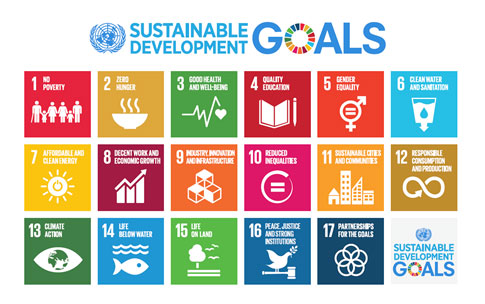The Future of Caribbean Developments: Challenges and Opportunities with SDGs
Presented at Clemson University Caribbean Initiative Forum
March 7, 2017, Clemson, South Carolina
By Okama Ekpe Brook, MA
The SDGs are clustered into six essential areas:
- dignity
- prosperity
- justice
- partnership
- planet and
- people.
New elements in the SDGs include human rights, economic development and climate change issues. The expected deadline for reaching the SDGs is 2030. The Caribbean Specific SDGs endorsed by the Economic Community for Latin America and the Caribbean (ECLAC) include SDGs 1-12, and 15 -16. Creating durable partnerships , conducting research and working collaboratively are key to addressing these SDGs.
The Caribbean Specific SDGs
Due to the specific challenges of the Caribbean region, particularly those affecting Small Island Developing States, The Economic Commission for Latin America and the Caribbean, a UN Sub-regional organization has recommended the adoption of 12 key goals out of the 17 Sustainable Development Goals. This is meant to focus efforts on specific priorities identified for the region. Each country is then supported through mechanisms available within the United Nations to enable achievement of the selected goals. This approach also allows for learning from the past process and building on established strategic opportunities and establishing durable partnership towards achievement of the goals, nationally, regionally and globally. A critical success factor will entail the ability for Government sin the Caribbean region to create the enabling environment for collaboration and strategic partnerships with national and international partners, civil society organizations and the private sector’.
Below is a listing of the 12 Caribbean Specific SDGs:
- End hunger, achieve food security and improved nutrition, and promote sustainable agriculture
- Ensure healthy lives and promote well-being for all at all ages
- Ensure inclusive and equitable quality education and promote life-long learning opportunities for all
- Ensure gender equality and empower all women and girls
- Ensure access to affordable, reliable, sustainable, and modern energy for all
- Promote sustained, inclusive and sustainable economic growth, full and productive employment and decent work for all
- Build resilient infrastructure, promote inclusive and sustainable industrialization {and services development} and foster innovation
- Reduce inequality within and among nations
- Take urgent action to combat climate change and its impact
- Conserve and sustainably use the oceans, seas, and marine resources for sustainable development
- Build effective, accountable and inclusive institutions at all levels, provide access to justice for all, promote peaceful and inclusive societies
- Strengthen the means of implementation and revitalize the global partnership for sustainable development.
Recommendations for the Sint Maarten Process for the SDGs
- Incorporate into the National Development Plan (NDP) and other ministerial plans and promote the SDGs throughout relevant entities outside the government.
- Take full advantage of opportunities to establish partnerships with international agencies, such as the UN, European Commission and multilateral organizations to promote equal development agenda.
- Promote and strengthen regional cooperation efforts though cooperation partnerships with , and renew treaties and conventions with bilateral and multilateral agencies
- Embrace the ECLAC development agenda and take all measures to integrate into the CARICOM.
- Seek possibilities for the establishment of Academic Liaison Office/s as a Regional Hub Center that will service the Caribbean region
- Redefine and select potential candidates as UN Goodwill Ambassadors from the region to profile and highlight specific Caribbean SIDS issues to the UN and international organizations
- Strengthen the capacity of SIDS to pursue sustainable development and economic diplomacy. This can be achieved within the framework of OCTA, EU and ACP for non sovereign SIDS and with CARICOM for independent Caribbean SIDS. A clear strategy for implementation must be devised, monitored and evaluated
- Actively create a unified public service administration that focuses on programmatic governance principles that applies evidence based planning techniques
- Promote a body to coordinate and support civil society capacity building efforts for participation in national development processes.
- Strengthen institutional capacities to facilitate aid coordination and donor mobilization
- Strengthen institutional capacities to support promotion of human rights and good governance measures including accountability, transparency, effectiveness and efficiency.
oeb, March 7, 2017.

